In the late 1960s, when I was a newlywed, my mother-in-law told me what seemed like a quaint story about how her parents helped her out when she got divorced. She was a single mother of three, without any college or professional skills. She didn’t even have a credit card, as most banks in those days did not extend credit to unmarried women.
I now think of myself as a Maddie: mature, able, and downwardly mobile.
Her parents made a habit of sneaking cuts of meat into her freezer, where she would discover them with gratitude and relief. This went on for some time, while she forged a career in real estate. She worked hard. She invested, although not always wisely. Nevertheless, by the time she was the age I am now, she had bought herself a Volvo, some nice rings, and a mink coat. As a callow twenty-something, I found these purchases shallow and status-seeking, but I think I finally understand what they meant to her: she had worked hard, and now she was going to be all right.
Decades later I’m a middle-aged, divorced mother of three, and I wish someone would sneak cuts of meat into my freezer. My teenagers are ravenous. Sometimes I come home from work to discover that my cupboards are bare, as if swarmed by locusts, only one day after I’ve dropped a couple hundred dollars at the supermarket.
Post-Mortem Predation? Please no.
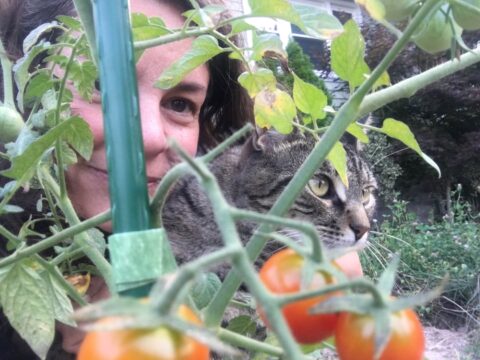
Christine and her cat Rocco in her all-important tomato garden.
On paper, I have many more advantages than my (former) mother-in-law. I have a top-notch educational pedigree (bachelor and masters of arts from fancy schools) and more than twenty-five years of white-collar professional experience. And yet, when it comes to making ends meet, here’s what I find myself thinking about sometimes: cat food.
Some days I think I’m going to end up one of those elderly cat ladies, feeding my cats—and myself— from cans of cat food, because I will be wrecked and destitute after the debt and the college bills and the health care costs catch up with me. Other days I think I will be the cat food, because from what I’ve read cats will wait only a couple of days before they eat you. (This is called, on the internet, “post-mortem predation,” and I hope it’s not true.) Then, on other days, I realize that neither one of these horrible fantasies is mutually exclusive. They could both come true.
Just to be clear: I would never claim to be poor. I’m broke, and not just broke this month or that month, but chronically broke, like, as far as I can tell, for the rest of my life.
I am, to put it mildly, strapped. And just to be clear: I would never claim to be poor. I’m broke, and not just broke this month or that month, but chronically broke, like, as far as I can tell, for the rest of my life. But that’s different from poor. Keeping things in perspective, my kids have shoes that fit, orthodontists, and their own bedrooms in houses that are pest-free. My eldest was mugged at gunpoint coming home from school, but he is not experiencing trauma about it because it was an exception, not a rule.
When my youngest had Lyme disease, we got it treated. I keep my house cold in the winter because heating oil is expensive, but I’ve never found myself choosing between heat and food. Also, I have faith that my ex and I will be able to navigate the system and find a way to send our kids to college. We are far ahead of many people in the U.S., our children far luckier, and I don’t take that lightly.
How I Became a “Maddie”
But for those who are interested, here is how I became a Maddie. When I was in college, I thought I might grow up to be a Yuppie, an acronym for “young, upwardly mobile professional.” I now think of myself as a Maddie: “mature, able and downwardly mobile.” It started with my divorce two years ago. When I was married making ends meet was always tough, but the doubling of costs (house, heat, utilities, etc.) has been a permanent challenge that has really put me over the edge.
Here is a snapshot of my financial situation. I have a full-time, year-round job with a five-figure salary; on top of that I have a steady freelance gig that I do for about twenty hours a month; and on top of that I take on assorted freelance writing gigs. Because I work at a university that gets most of its funding from government science agencies, I get a salary increase of between one and three percent every year; meanwhile, my health insurance went up six percent last year, and the year before that it went up nineteen percent.
When I was married making ends meet was always tough, but the doubling of costs has been a permanent challenge that has put me over the edge.
I don’t eat out, I certainly don’t have cable, and if I buy myself clothes they come from Goodwill. I try not to have a preference for coffee; I buy the coffee beans that are on sale. I use coupons. I buy daily throw-away contact lenses but wear them for three or four days at a time. I put off doctor visits when I can because even though I have insurance, the co-pay and “charges above reasonable” can be just enough to break the bank that month. My last vacation involved camping, which isn’t nearly as cheap as it used to be. I get paid twice a month; my account is at zero for no fewer than ten days a month; I’m one of those people who says, “Can you please wait until the 15th before you cash this?”
Read More: My Retirement Fantasy is a Beach House With Girlfriends. Is That Too Much to Ask?
Divorce and Money: Financial Woes After the Big Split
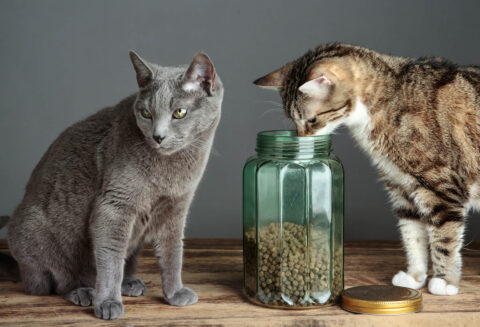
Years ago, I read somewhere that there are four markers for the middle class—home ownership, health insurance, vacations, and retirement savings. I have the first two of those four, although I’m not certain how “home ownership” counts if the bank owns most of the house. My financial goal for 2017 is to have $1,000 in my savings account by the end of the year, but honestly, if I lose my job or get really sick, that $1,000 will vaporize in a hot second.
I buy daily throw-away contact lenses but wear them for three or four days at a time.
Everyone I’ve ever worked with has told me I have writing skills, people skills, and organizational skills. But being a writer in 2017 might be analogous to being a travel agent, or a typewriter repairman. And that’s fair because times change. There was once a thriving market for women who made lace bobbins, after all, and for children who climbed down chimneys in order to clean them.
The Pantry in My Yard
So I’m a Maddie who fantasizes about coming home to find that someone has snuck food into my fridge. I yearn for a feeling of security, for someone to take care of me, which is a kind of embarrassing fantasy for a feminist, and this isn’t how I imagined my middle age or golden years. It would be nice to think that the U.S. will get back to prioritizing the well-being of the middle class, but by now I think we’re all figuring out that that may not happen for a long time. Most likely, I’ll be in my dotage before the pendulum swings back.
There are edible weeds literally growing out of the cracks in my sidewalk, and every day I nibble on the leaves to acquire a taste for them, just in case.
I have, however, succeeded at growing potatoes in my yard. I’ve inoculated some logs with shiitake and oyster mushroom spawn, and this weekend I made preserves out of wineberries that I foraged for free in a state park. My cherry tomatoes are abundant—I have them in red, orange and yellow, in hybrid and heirloom varieties. I can save the seeds of the heirlooms and use them next year. There are edible weeds literally growing out of the cracks in my sidewalk, and every day I nibble on the leaves—purslane, wood sorrel and self-heal—to acquire a taste for them, just in case.
If she were still alive my mother-in-law would be 79, but as it turns out, after she bought the Volvo and the mink coats and the subscription for expensive coffee delivery, she died of cancer at the age of 56. Meanwhile, Gott sei Dank, my children are funny, healthy, loving and lovable people, and if I could do it all over again—that is, go broke while raising them—I would. As the good book says, the rest is commentary.
Read More: Paying for Kids’ College: Grief, Terror, and More!

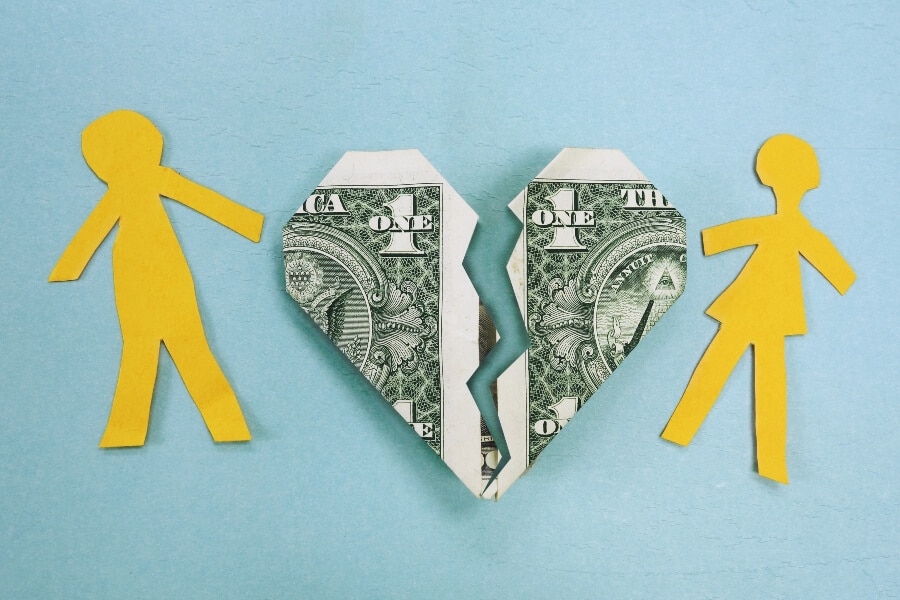






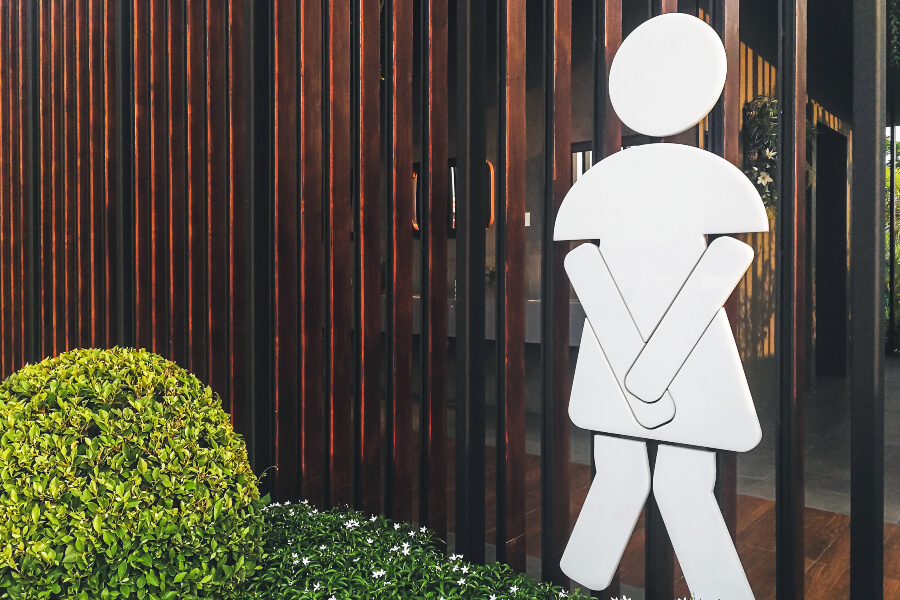






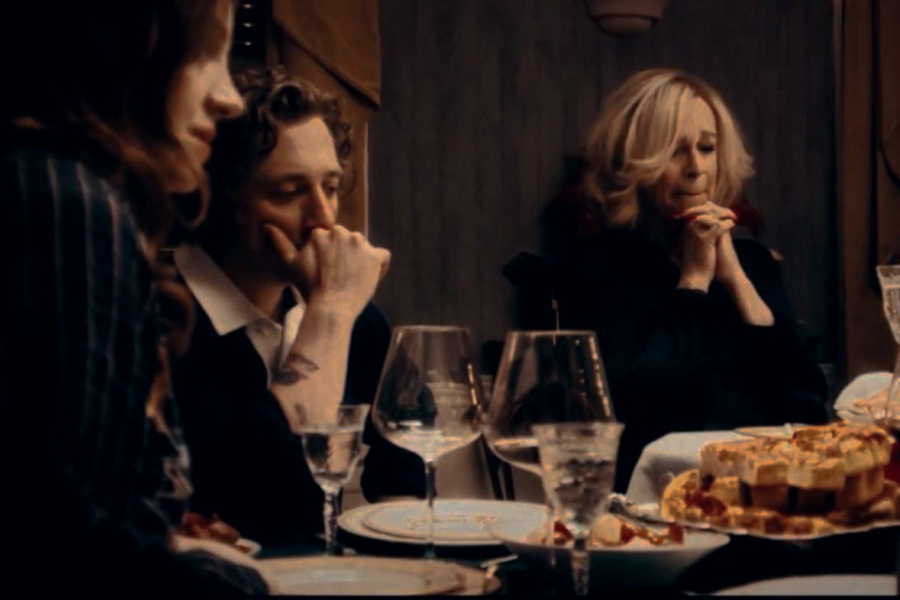

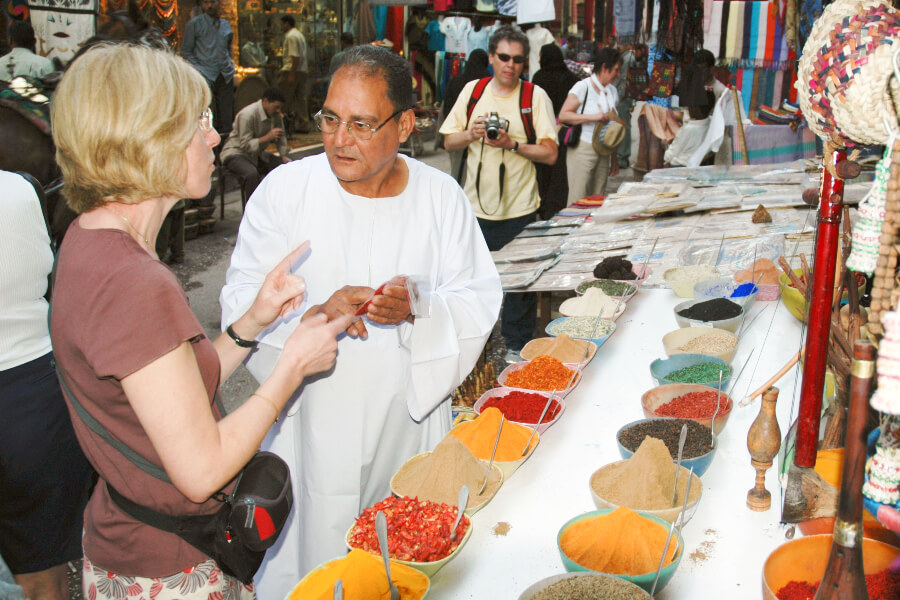

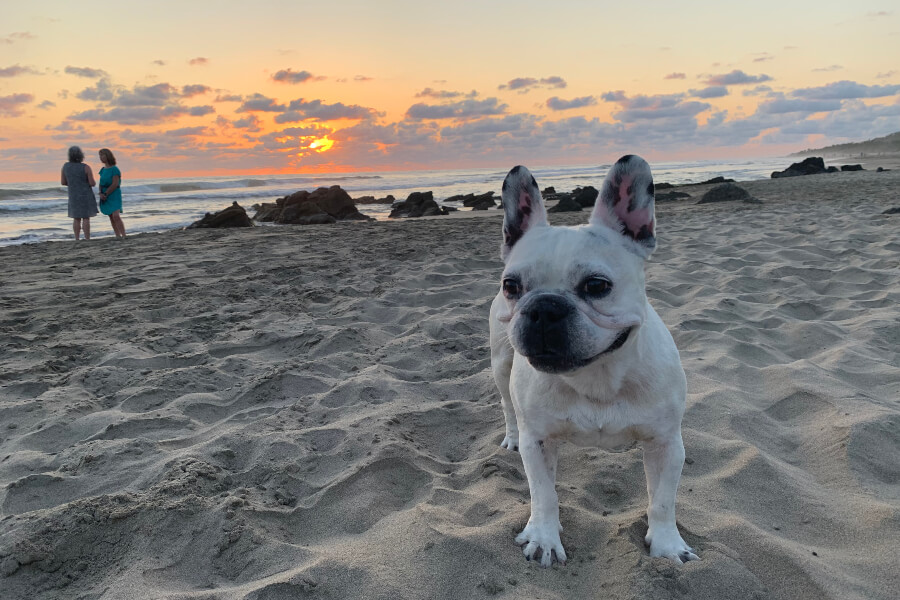

0 Comments